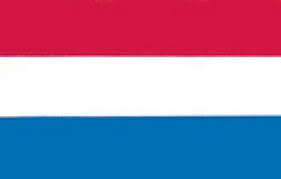The Dutch draft legislation to implement the Unitary Patent Package in the Netherlands includes an interesting ‘safety net’ provision. If registration of unitary effect of a European patent is rejected by the EPO and this is confirmed by the UPC (as the case may be), there will be a possibility to validate the patent in the Netherlands, regardless of normal time limits.
 Marc van der Burg, legal advisor of the Netherlands Patent Office (part of the Netherlands Enterprise Agency) and closely involved in drafting the legislation, pointed this out in an interview with Kluwer IP Law.
Marc van der Burg, legal advisor of the Netherlands Patent Office (part of the Netherlands Enterprise Agency) and closely involved in drafting the legislation, pointed this out in an interview with Kluwer IP Law.
As Van der Burg explained, the European Patent Office will be in charge of registering requests for unitary effect. However, it cannot be excluded that due to a mistake of the patent proprietor, something goes wrong and the request for unitary effect is rejected. An EPO rejection can be contested before the Court of First Instance and the Court of Appeal of the UPC, but this can take up to five months from grant, whereas the time limit for national validation of a European patent in the Netherlands is only three months.
Van der Burg: ‘It would be unreasonably harsh for a patent proprietor to entirely lose protection from a perfectly valid European patent, due to a mistake in requesting unitary effect. Absence of a safety net could even become a disincentive for users to opt for Unitary Patent protection. Therefore, it is proposed to introduce a safety net provision (‘vangnetbepaling’) in the Dutch Patents Act (‘Rijksoctrooiwet 1995’), which gives the proprietor the possibility to validate his European patent in the Netherlands up to two months after receiving the EPO rejection or the decision of the UPC.’
As far as Van der Burg knows, as yet only Sweden has introduced a similar clause in its national legislation. He thinks the provision is important for businesses and hopes other UPC Member States will follow suit.
For the Netherlands, a very difficult issue to solve was the implementation of article 4, paragraph 2, of Regulation (EU) 1257/2012 on Unitary Patent protection, Van der Burg said. Under this paragraph member states have to ensure that, the moment unitary effect of a European patent has been registered, the patent is deemed not to have taken effect as a national patent in their territory. The problem is that a European patent in the Netherlands is also granted for overseas territories in the Caribbean: Bonaire, Curaçao, Saba, St. Eustatius and St. Maarten, whereas EU regulations like Regulation (EU) 1257/2012, and thus the unitary effect, apply only to the territory of the Netherlands within Europe.
‘This was a real brainteaser’, Van der Burg said, ‘although in hindsight, the solution seems so obvious.’ The traditional European patent granted for the Netherlands will be split: one part of the European patent, concerning the territory of the Netherlands within Europe, will become part of the Unitary Patent, whereas the other part, concerning the Caribbean, becomes a so-called ‘territorially restricted’ European patent, only valid in the Caribbean. This territorially restricted patent is subject to the same provisions in the Dutch Patents Act as a traditional European patent. This implies e.g. that within three months after grant, it has to be validated to obtain protection in the Caribbean.
The split between the European part and the Caribbean part is complete. The Unitary Patent lapses if renewal fees are no longer being paid to the EPO, the territorially restricted European patent lapses if renewal fees are no longer being paid to the Netherlands Patent Office. Revocation is independent as well: the UPC has exclusive competence to revoke a Unitary Patent, whereas only The Hague District Court can revoke a territorially restricted European patent.
The harmonization of the infringement provisions of the Dutch Patents Act with the UPC Agreement is more urgent in the Netherlands than in other UPC Member States, according to Van der Burg. After the adoption of the Community Patent Convention (CPC) in 1975, many EU member states brought their national patent legislation in line with the CPC – which was never ratified. Dutch patent legislation was considered to be almost completely in line with the CPC, so very little changed in the Dutch Patents Act at the time.
‘This worked reasonably well as separate national courts decided IP cases on basis of their national law’, according to Van der Burg, who told about the proposed amendments at a recent Kluwer Patent Congress in Amsterdam. ‘But during the future transitional phase (art. 83 of the UPC Agreement), an infringement action can be brought before the Dutch court, which will apply the Dutch Patents Act, as well as before the UPC, which will apply the UPC Agreement. So the general feeling was that the Dutch Patents Act needed to be harmonized as far as possible with the UPC Agreement; not only on the substance, but also its wording. In this way, users will only have to deal with one set of rules, irrespective of the forum where an infringement is started.’
Still, the changes in the Dutch Patents Act are limited, Van der Burg said. But for attorneys, judges, experts of businesses and lawyers, the situation will probably change more. ‘In case of a lawsuit, instead of being restricted to one country, companies can then go to lawyers in a range of member states and decide who is most suited to do the case and who offers the best price. The new UPC judges will have to leave behind their different national traditions and create a new unified patent litigation system.’
For regular updates on the UPC, subscribe to the free Kluwer IP Law Newsletter.
________________________
To make sure you do not miss out on regular updates from the Kluwer Patent Blog, please subscribe here.


